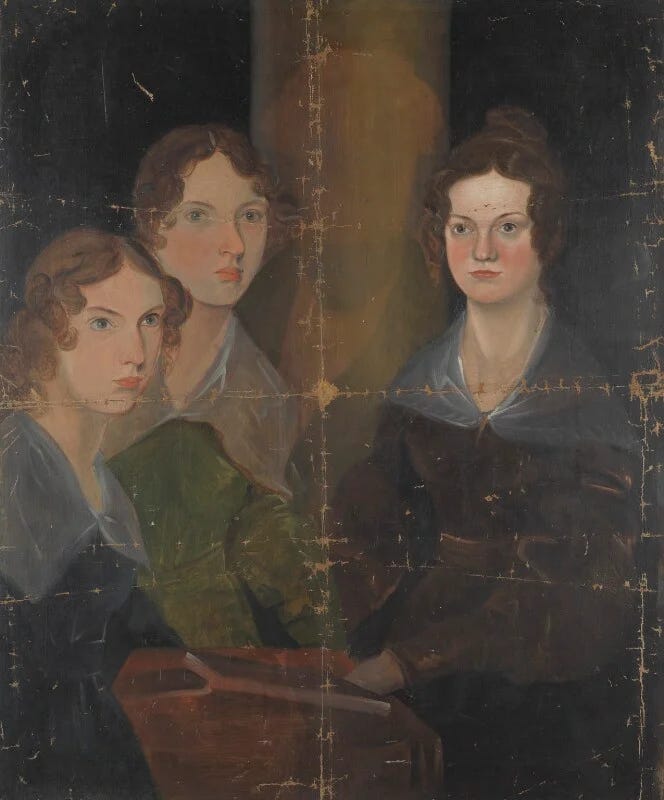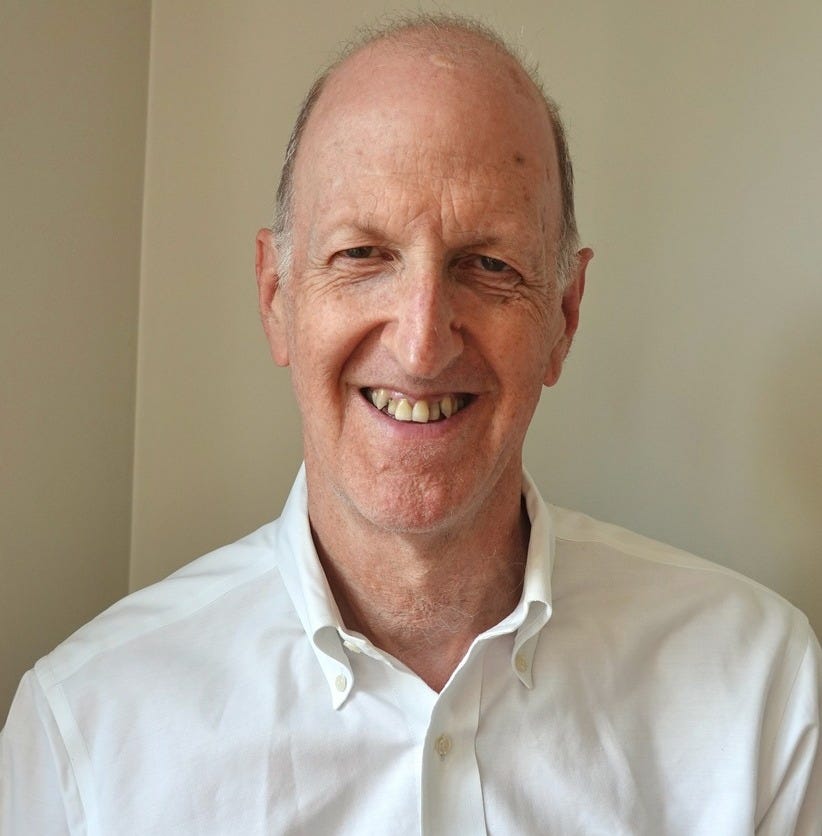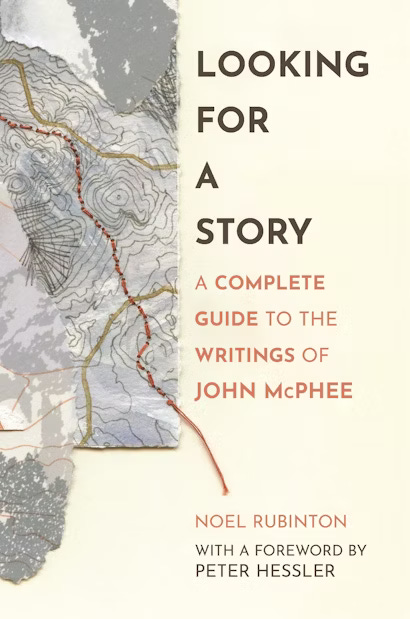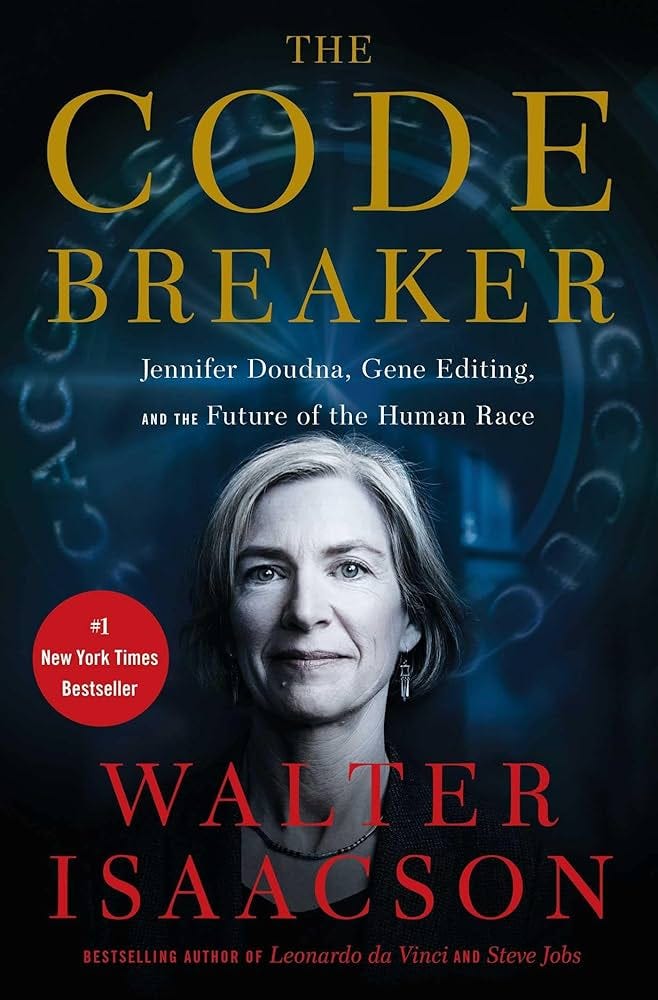In this week’s newsletter:
Princeton UP’s 50% off sale ends Saturday
3 Episodes On: Writers and Their Legacies
The Brontë Birthplace Open to the Public
A Short Guide to the Writings of John McPhee
Graduate Student Spotlight: Jasmine Amerasekera
Princeton University Press Sale
Take advantage of the last few days of the Princeton University Press Spring sale! Get 50% off across the catalogue with the code: BLOOM50 at checkout through Saturday, May 31st. Listen to some compelling recent interviews with Princeton UP authors and add them to your cart!
3 Episodes On: Writers and Their Legacies
This week, check out three interview with scholars who have published books about the lives and legacies of Phillis Wheatley, Franz Kafka, and John Steinbeck.
Though she's celebrated as the mother of African American literature and her poems are taught in schools to this day, Phillis Wheatley remains a mysterious figure. In Phillis Wheatley: Biography of a Genius in Bondage, Vincent Carretta painstakingly pieces together what is known about Wheatley's life.
In this fascinating interview, Benjamin Balint discusses his book Kafka's Last Trial: The Case of a Literary Legacy, in which he offers a gripping account of the international legal battle to determine which country could claim ownership of Kafka's work: Israel, where Kafka dreamed of living but never entered, or Germany, where Kafka's three sisters perished in the Holocaust.
Listen to William Souder discuss his book, Mad at the World: A Life of John Steinbeck, which explores John Steinbeck’s long apprenticeship as a writer struggling through the depths of the Great Depression, and his rise to greatness with masterpieces such as The Red Pony, Of Mice and Men, and The Grapes of Wrath.
Brontë Birthplace Opened to the Public
The Brontë Birthplace in Thornton, Bradford, where the Brontë children were born in front of the parlour fireplace, is now open to the public for the first time in its 200-year history. The Brontë Birthplace officially opened 210 years after the family moved to Thornton in May 1815, and Her Majesty Queen Camilla joined for the celebration. Fans of Charlotte’s Jane Eyre, Emily’s Wuthering Heights, and Anne’s The Tenant of Wildfell Hall can explore the very place that this famous literary trio were born, and soon even stay overnight in their rooms.
Read more about the Brontë Birthplace here. And listen to NBN host Duncan McCargo’s discussion with two Brontë Birthplace committee members about the project. If you’re in the area, you can also visit the nearby Brontë Parsonage Museum. This museum was the literary family’s home as these women wrote their masterpieces, and you can find the largest collection of Brontë items in the world.
A Short Guide to the Writings of John McPhee
Noel Rubinton is a journalist and strategic communications consultant whose writing has appeared in leading publications such as the New York Times and the Washington Post. He was a reporter and editor for Newsday for many years.
Noel recently published Looking for a Story: A Complete Guide to the Writings of John McPhee (Princeton University Press, 2025). This annotated guide walks readers through the vast published work of Pulitzer Prize-winning writer, teacher, and pioneer of creative nonfiction John McPhee. Noel gives insights into McPhee's techniques, choice of subjects, and research methods. He includes extensive annotated listings of articles about McPhee, reviews of his books, and interviews, readings, and speeches.
Noel has kindly shared a list of five essential pieces by John McPhee!
Time: Cover story about actor Richard Burton, Apr. 26, 1963: 70. — In a rarity for Time magazine in that era, McPhee did all the research (in England and Wales) and writing of this cover story—Burton insisted that he only wanted to work with McPhee.
Time: Cover story, Barbra Streisand, “Broadway: The Girl,” Apr. 10, 1964: 62. — Funny Girl on Broadway catapulted Barbra Streisand to stardom and McPhee did the Time cover.
The New Yorker, “A Forager,” Apr. 6, 1968, 45. — A profile, in the wilds, of Euell Theophilus Gibbons, a leading advocate of gathering and eating wild foods.
The New Yorker, “The Encircled River,” May 2, 1977: 47 — This article about a canoe and kayak trip down a river in Alaska and was the beginning of what would become McPhee’s bestselling Coming into the Country.
A Sense of Where You Are: Bill Bradley at Princeton, 1965. — McPhee’s classic first book on Princeton scholar-basketball star Bill Bradley. It was the profile that won McPhee his staff writer job at The New Yorker and has gone on to be his most anthologized writing.
After reading this short list of McPhee’s work, listen to Noel’s NBN interview about Looking for a Story: A Complete Guide to the Writings of John McPhee.
Graduate Student Spotlight: Jasmine Amerasekera
My name is Jasmine Amerasekera. I am currently a fourth year PhD student at the University of California, Los Angeles, studying genetics and genomics. I went to the University of California, Berkeley, for my undergraduate degree in Integrative Biology.
Q: Can you share a bit about your academic interests and what led you to your area of research, and current lab?
A: I originally joined my PhD program to study human health and disease. I had previously worked for a biotech startup that worked on developing CRISPR gene-editing therapeutics to treat genetic diseases, which is how I became interested in the field of genetics and in gene-editing. My PhD program allowed me to rotate in different labs during my first year before settling on one in which to work on my dissertation. I did one of these rotations in my current lab, the lab of Steve Jacobsen at UCLA. Although his lab focuses on plant genetics, I have enjoyed the opportunity to continue my work in gene-editing research.
Q: Why did you decide to go to graduate school?
A: I tried not to! When I was working for my old company, Scribe Therapeutics, I thought maybe I would like to stay there for a few years and see what kind of path there was in science research that didn’t involve grad school. I spent the first 8 months there honing my wet lab skills at the bench, and I was feeling really good about it.
However, during Covid, there was a few weeks where we were all sent home, and I realized that while I had vastly improved my practical techniques, I was a far cry from being the scientist I wanted to become in terms of understanding how to develop research projects from start to finish. This was emphasized by the fact that I had no idea what to do if I wasn’t physically in the lab. I realized that all the scientists at the company that I looked up to had really developed their expertise during their own PhDs. In industry, there isn’t a lot of room for personal growth outside of the goals of the company. It was hard to find time outside of work to develop that knowledge. Graduate school offers the opportunity to work largely for yourself, delving into topics that you find interesting and digging deep. It’s not all about racing toward a product, which has allowed me to painstakingly focus on learning the skills involved in taking a research project from start to finish over the course of several years.
Q: What have you found rewarding about graduate school so far?
A: I have had the opportunity to mentor several undergraduate students at this point, both as a teaching assistant in the classroom and in the lab for students who want lab experience. It’s been really rewarding to pass on my knowledge and skillset to the next generation of scientists, and seeing them improve over time has been awesome. I myself have also had the chance to be mentored by scientists at the top of the field, and watching the inner workings of high profile research coming together has been beyond my wildest dreams.
Q: Are there any books, papers, or other media that have been influential in your evolution as a scholar?
A: Uncle Tungsten: Memories of a Chemical Boyhood by Oliver Sacks; Educated: A Memoir by Tara Westover; The Code Breaker: Jennifer Doudna, Gene Editing, and the Future of the Human Race by Walter Isaacson; many others of course but these few really contributed to my understanding of education, science, and gene-editing research in general.
Q: Is there anything that has been challenging for you about graduate school that you want to share with readers?
A: I’ve discovered that I’m a very task-oriented person. When I worked for biotech companies, I had a list of things to do and I did them and was rewarded for that. Obviously I wanted more, and that’s why I went to grad school, but it’s been difficult to shift the way I think about my work to the bigger picture kind of thinking that research is really about. That, coupled with the incredible loose deadlines and expectations that require a lot of self motivation, has been extremely challenging for me.
Q: Is there any advice you would like to give to other graduate students that might be reading this?
A: Talk to people early about how to think of projects and research in general. Be open about your existing limitations and how you want to overcome them. I discovered that other people in my lab think so far beyond the individual tasks of the experiments. They’re always thinking about the story itself that they’re trying to tell, and after talking to them, I realized my perspective was too narrow. But until I had these conversations, I felt so overwhelmed and confused. I wish I’d gotten that clarity sooner by asking more big picture questions.
Q: Are there any New Books Network interviews or channels that are interesting to you?
A: The History of Science channel, as well as the Biology and Evolution channel have caught my eye. I think that there is a such an interesting diversity in the historical bases that make up modern science and I always enjoy learning more about those.










